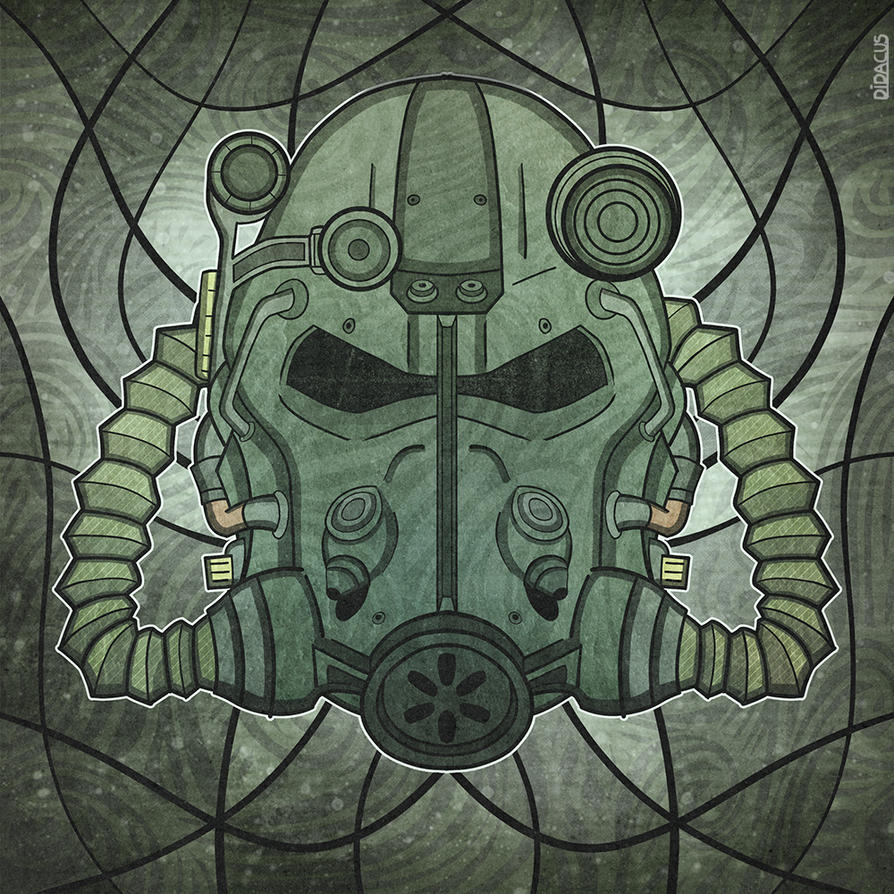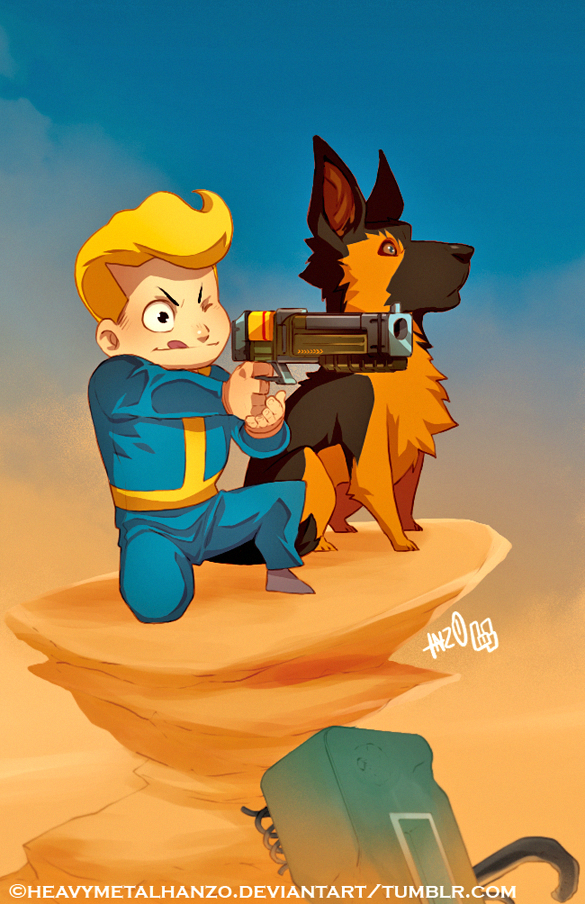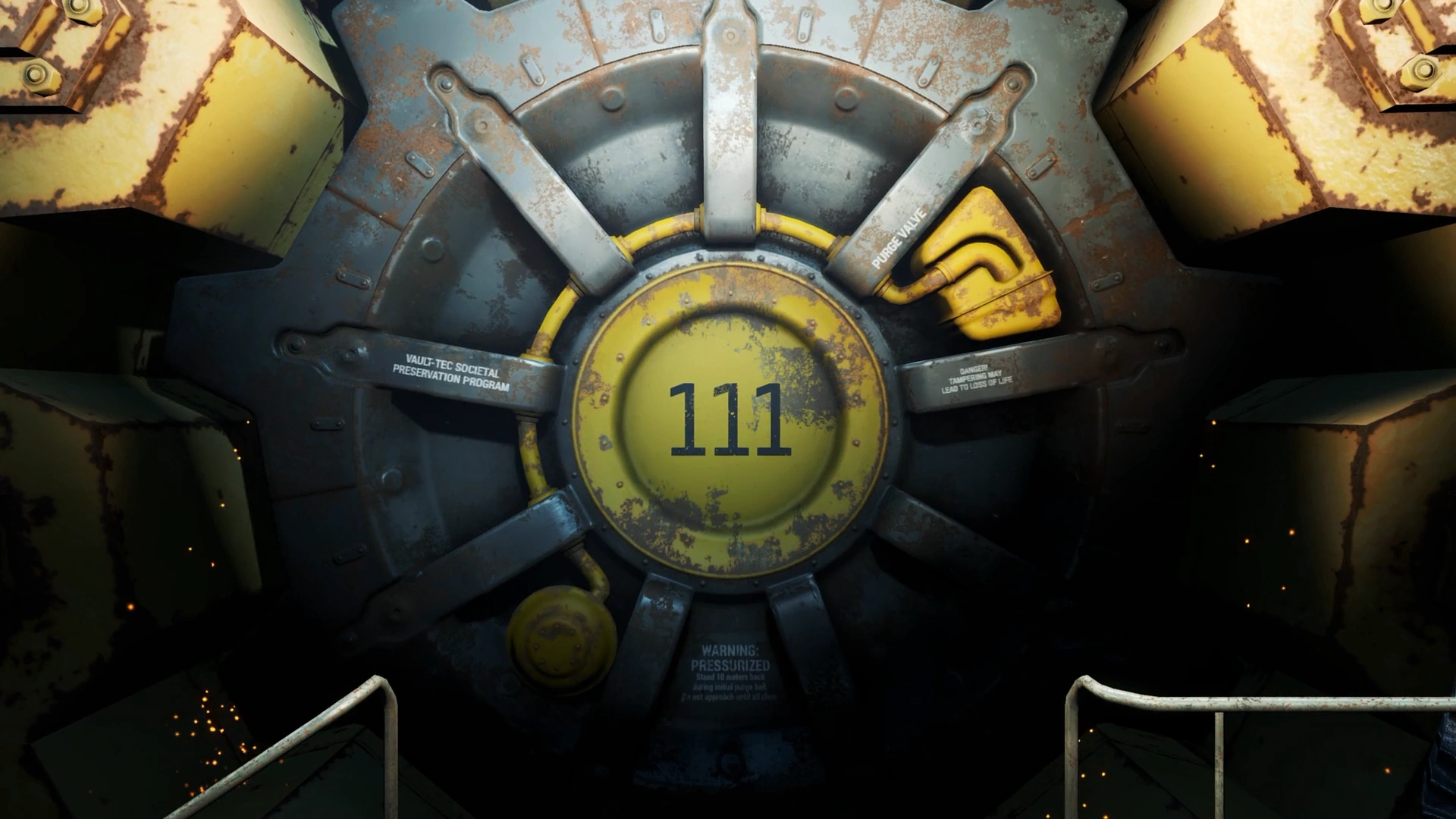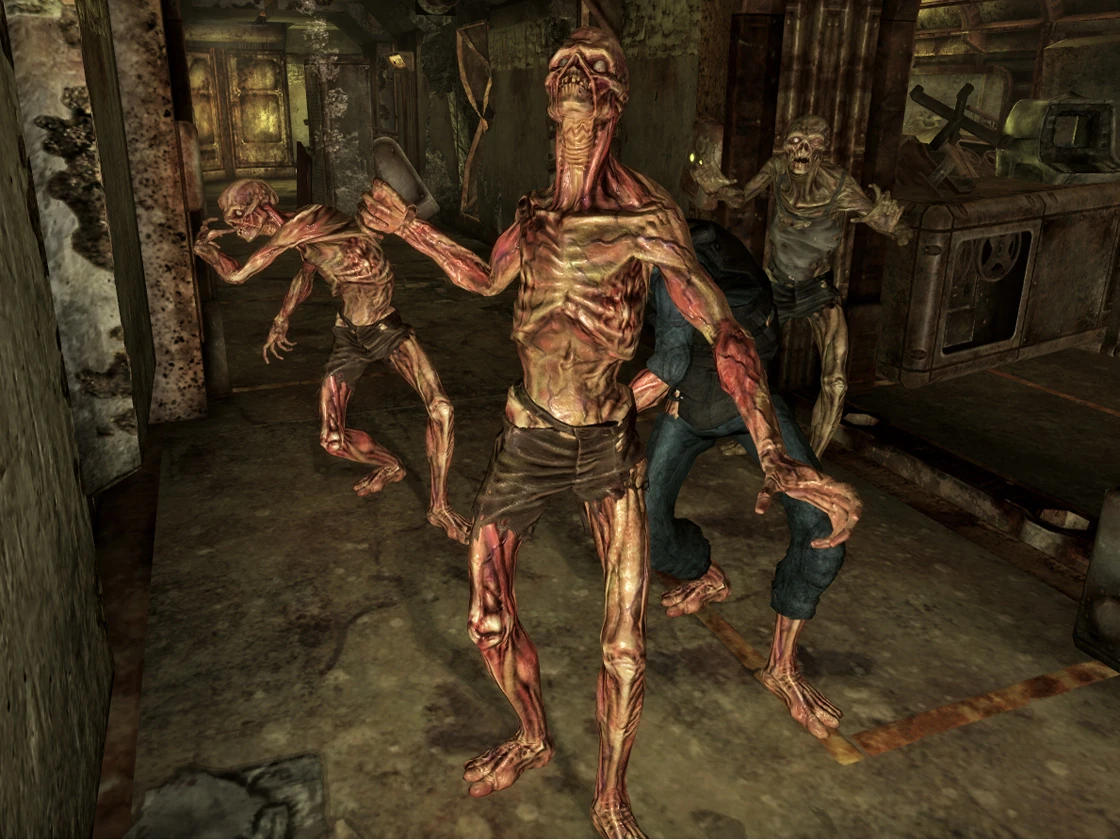 |
| Image Source: http://heavymetalhanzo.deviantart.com/art/Fallout-Power-Armor-Helmet-544733060 |
"War. War never changes ...."I've finally sated my bloodlust for Fallout 4 enough to come up for air, and I decided to celebrate by delving into Fallout ... What? It makes perfect sense!
Anyways ... Fallout is one of those video game franchises that has lasted for a good many years (nearly 20!) and managed to do so without any major missteps (though that will certainly generate an argument from somebody). While some are decrying the lack of true RPG options in Fallout 4, with the game being more shooter-y and less "I can solve this any way I like" the fact is that not only is it more Fallout, it's also Fallout set in Boston! (And seriously, there are a lot of options for talking stuff out if you have a good Charisma, but don't expect to avoid shooting stuff with a Charisma below like 6.)
I don't know if I'll have the time to get a chance to actually play a tabletop RPG set in the Fallout 'verse, but that's not going to stop me from laying the bricks... and since I can choose what bricks to lay I am building my Fallout TTRPG hack from Cypher System bricks...
Oh and since I'm feeling very much in a Fallout 4 mood this'll be geared toward the Commonwealth more so than say, the Capital wasteland, or the Mojave.
New Rules
I mostly hate doing this, but sometimes you just need to add stuff to make things work. In this case Radiation needs some specific rules beyond what are built into the Cypher System Rulebook (henceforth CSR), and I want to address specific concerns over weaponry and Power Armor.
- Radiation - In prior Fallout 4 radiation sucks. Like it really really sucks, and it is something to genuinely be afraid of and have a real desire to get rid of. To model the crappy as heck radiation damage use the following rules.
- Radioactive attacks (such as those from feral ghouls, radroaches, and other wasteland creatures) do their normal damage and also reduce the character's might pool by 1 point. This reduction lasts until treated with Radaway (see cyphers), or by a medical professional with the appropriate equipment (a level 5 task that requires a medical suite).
- Exposure to radiation from environmental sources removes 1-5 (typically) pool points from Might per scene, modified by any leaded armor, or RadX.
- GM Intrusions may also create environmental radiation sources that do instant damage (e.g. mini-nukes, exploding nuclear cars, and the like)
- Radiation damage beyond a target's Might capacity will decrease Speed and then Intellect as normal. Each pool reduced to Zero by radiation requires a Might Defense check of level 4+[Number of pools at Zero], failure means the loss of additional pool points equal to the difficulty of the check. Characters who succeed may chose to become Ghouls and replace their current descriptor with the Ghoulish descriptor.
- Power Armor - Power Armor consists of three separate items of note: Power Frames, Fusion Cores, and Armor Sections. Each of these
- Power Frames - The power frame is the skeleton that supports the rest of the armor and contains the motive systems. Frames require a Fusion Core to run. When powered with a fusion core a power frame will generate the following bonuses:
- +3 Might Edge for lifting and carrying objects and damage on melee attacks
- Inability on Speed Defense tests
- Fusion Cores - Fusion cores are the small but potent power source that makes Power Armor function. Cores are treated as artifacts that can activate a Power Frame. When a core is new it rolls for depletion on a 1 in d20. If the core continues to be functional it then rolls for depletion on a 1 in d10, after that if the core remains functional it rolls depletion as a 1 in d6 until the GM determines the core is depleted via a GM Intrusion.
- Armor Segments - I'm simplifying armor segments greatly because Cypher System is a fairly narrative game and I already feel bad about the stuff I am bolting onto it. Simply put each section of armor (left arm, right arm, helmet, chest, left leg and right leg) each provide +1 armor for a total possible 6 Armor. This armor has no penalty beyond that of the penalty imposed by a Power Frame.
- Weapons
- Laser Weapons
- Laser Pistols are a Medium Range, Light weapon
- Laser Rifles are Long Range, Medium Weapons
- Laser Sniper Rifles increase their range to 300 feet
- Gatling Lasers are Medium Range, Heavy Weapons with Rapid-fire
- Plasma Weapons
- Plasma Pistols are a Medium Range, Medium weapon
- Plasma Rifles are Long Range, Heavy Weapons
- Plasma Sniper Rifles increase their range to 300 feet
- Gatling Plasma Weapons are Medium Range, Heavy Weapons with Rapid-fire
- Gatling Plasma weapons inflict 8 points of damage per attack instead of the normal 6 for a heavy weapon
- The Syringer
- Medium Range (long for sniper modded)
- Treat as a Light Weapon but it deals no base damage
- Ammunition can be loaded with disease or poison to affect the target
- Effort for "damage" increases the level of the Might Defense
- Fat Man Launcher
- Can launch Mini-Nukes (see Post-War Cyphers) up to long range
- Junk Jet
- Heavy Weapon with a short range
- Can fire any object as ammunition
Post-War Cyphers
- Radaway
- Level 1d6; restores 1 point of Radiation damage per level of the cypher when used
- RadX
- Level 1d6; provides 1 armor for radiation only per level of the cypher for 1 hour
- Nuka-Cola Quantum
- Level 1d6; restores one pool to full, and provides an asset on all tasks for a number rounds equal to the cypher level
- Bottle-cap Mines
- Level 1d6+4, deals its level in damage to all targets in short range
- After being set, Bottle-cap Mines explode when an enemy comes within immediate range of them
- Mini-Nukes
- Level 10; deals 10 damage to all targets within medium range
- Can be thrown up to short range (see also Fat Man Launcher)
 |
| Image Source: http://whatpayne.deviantart.com/art/Nuka-Cola-Quantum-Poster-171021934 |
Cypher System types are your archetypal role. They fill in the character's "core proficiency" where their descriptors will provide some "attitude" and their focus provides their unique "skills."
- Warrior
- Warrior is a good fit for most any of your soldier type characters. These could be raiders, Brotherhood of Steel Knights, or even just really belligerent vault dwellers.
- Explorer
- Fallout is as much about exploration as anything else, and so the Explorer could easily be the heart and soul generalist of the game.
- Speaker
- Fallout has always used the S.P.E.C.I.A.L. system (more on that later), and some have always been inclined to invest heavily in Charisma. Speaker is the type for you if you would rather talk your way out of raider camps and run convoys between the wasteland's many settlements.
- Why no Adepts?
- Fallout has a long history of characters with powers that verge on ESP and more. These are fairly rare however, and have never been available for PCs in my memory. It feels to me like these should stay out of the hands of PCs as a result. GMs other than myself are free to "unlock" Adepts for their players if they want to embrace the weirdest parts of the wasteland as PC options.
- Flavors
- Any of the flavors aside from magic would be a good fit in a Fallout game as well. The freeform nature of character building in Fallout lends itself to people making stealth flavored speakers or skill flavored warriors.
 |
| Image Source: http://heavymetalhanzo.deviantart.com/art/The-Adventures-of-Vault-Boy-and-Dogmeat-571208841 |
I said above that Descriptors are kind of like a character's "attitude." They color the way the character interacts with the world and their history. The following list covers probably 90-95% of those in the CSR as there were really only a few that didn't fit the game as I see it. I'm not going to comment on all of these, but I may note some apt connections.
- Appealing
- Brash
- Calm (probably a Vault dweller or Brotherhood scribe)
- Charming
- Clever
- Clumsy
- Craven
- Creative
- Cruel
- Dishonorable
- Doomed
- Driven
- Empathic
- Exiled
- Fast
- Foolish
- Graceful
- Guarded
- Hardy
- Hideous
- Honorable
- Impulsive
- Inquisitive
- Intelligent
- Jovial
- Kind
- Learned
- Lucky
- Mysterious (the Fallout New Vegas courier perhaps?)
- Naive
- Perceptive
- Resilient
- Rugged
- Sharp-Eyed
- Skeptical
- Spiritual (Cult of Atom perhaps)
- Stealthy
- Strong
- Strong-Willed
- Swift
- Tongue-Tied
- Tough
- Vengeful
- Virtuous
Ghoulish
- Resilient: You gain +4 to your Might pool.
- Hideous: Your skin has fallen off leaving you with a grotesque appearance. You have an inability with all pleasant social tasks.
- Extended Lifespan: Ghouls have radically extended lifespans. They stop aging at the point they become ghouls and do not age. You can only die from damage, and gain training in all Might defense tasks.
- Radiation Resistant: You don't take damage from radiation normally. Instead of the normal rules for radiation damage you heal an amount of Might and/or Speed points equal to the radiation damage. Each time you are exposed to radiation do also lose one Intellect point (can be recovered normally).
- Feral Tendencies: Any time your Intellect pool is reduced to zero you must make a Level 4 Might defense roll. If this reduction is caused by radiation the difficulty increases to Level 6. If you fail this roll you permanently lose points of Intellect equal to the difficulty of the check. If this loss reduces your Intellect pool to Zero you become a feral ghoul.
Foci
- All Backgrounds
- Defends the Weak
- Crafts Unique Objects
- Entertains
- Fights Dirty
- Fights With Panache
- Leads
- Is Licensed to Carry
- Looks for Trouble
- Masters Defense
- Masters Weaponry
- Metes Out Justice
- Murders
- Needs No Weapon
- Never Says Die
- Performs Feats of Strength
- Solves Mysteries
- Stands Like a Bastion
- Throws With Deadly Accuracy
- Wields Two Weapons at Once
- Works the Back Alleys
- Wastelander
- Carries a Quiver (may be considered apocryphal)
- Controls Beasts
- Explores Dark Places
- Explores Deep Waters
- Hunts With Great Skill
- Lives in the Wilderness
- Slays Monsters (wasteland beasts like Yao Guai & Deathclaws)
- Brotherhood of Steel
- Battles Robots/Synths
- Conducts Weird Science
- Hunts Nonhumans/Ghouls
- Slays Monsters (wasteland beasts like Yao Guai & Deathclaws)
- The Institute
- Builds Robots
- Conducts Weird Science
- Fuses Flesh and Steel (Synth)
- Fuses Mind and Machine (Synth)
That's it for now, and should get most cypher GMs going easily enough using the NPCs provided in Chapter 17 of the CSR as raiders, wastelanders, and the like. I plan to do a second post next week detailing some of the wastelands more infamous creatures, such as mirelurks, supermutants, deathclaws, and the like.
Meanwhile how did I do? Anything you would do different? Anything I missed that I should add? Let me know in the comments.
See also:
See also:



this is bd Job releted site.
ReplyDelete